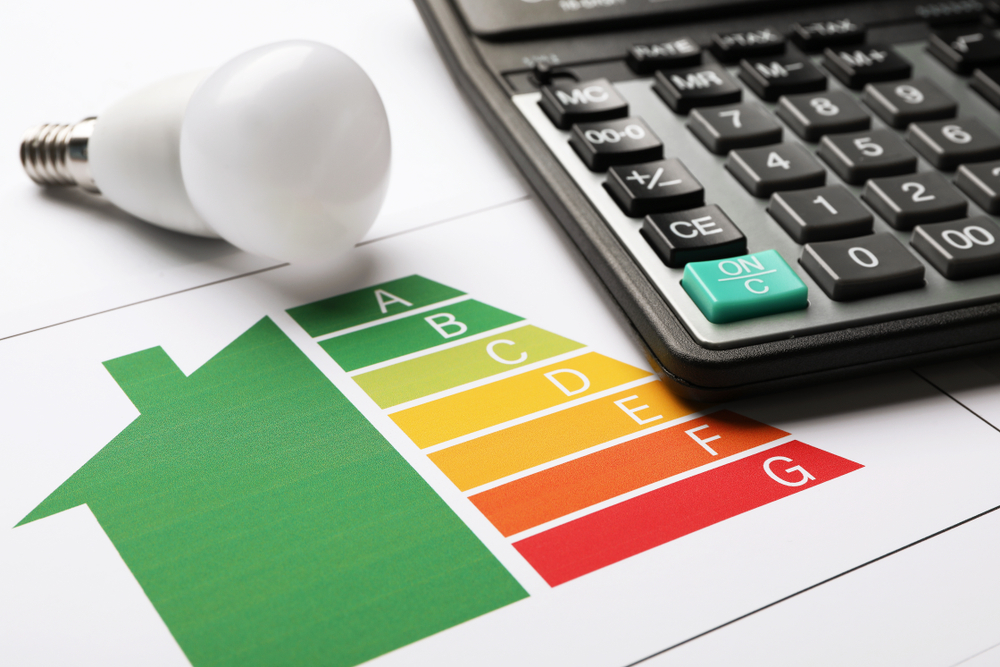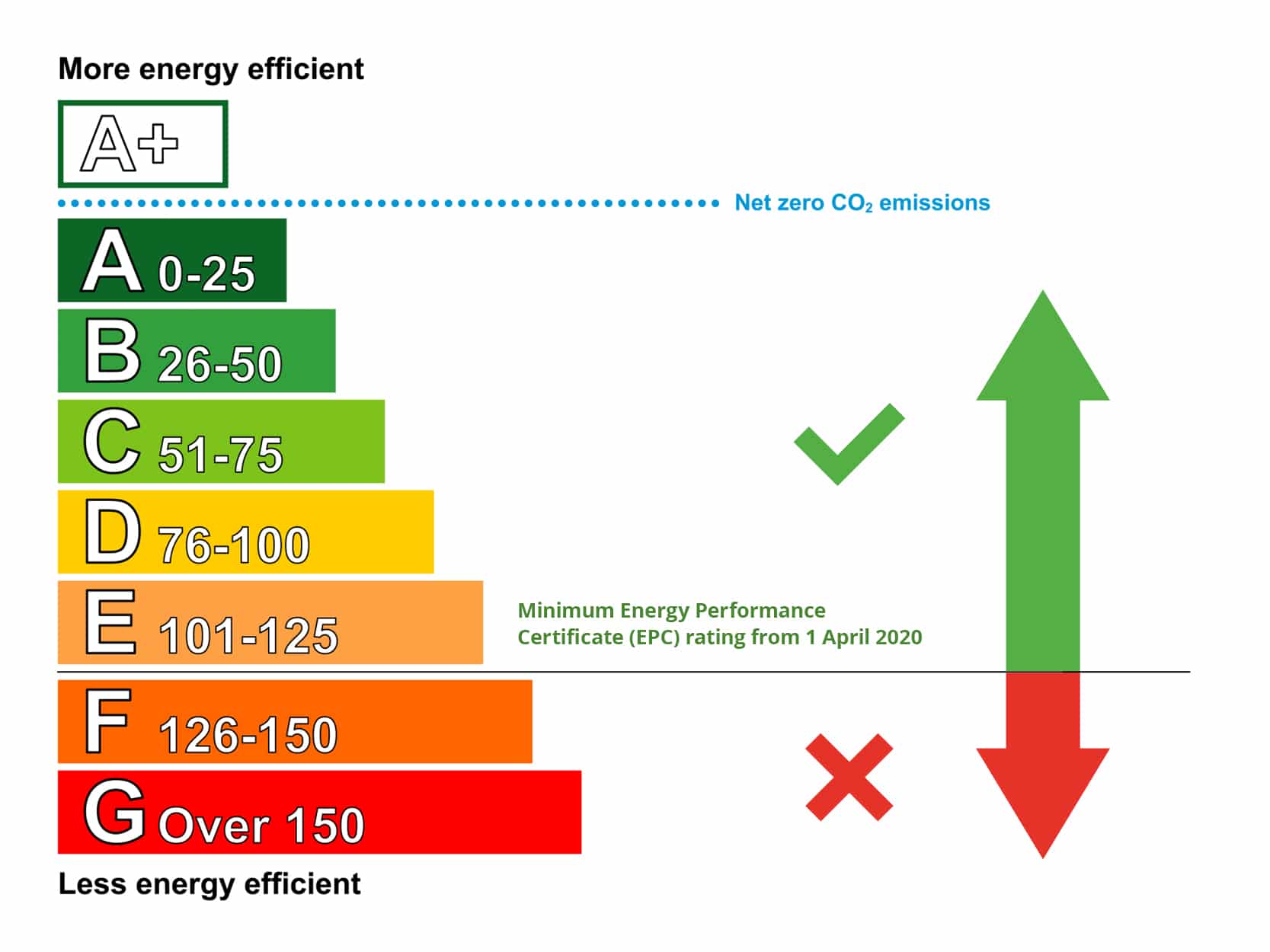Get a Domestic EPC for Your Property
An Energy Performance Certificate, or EPC, is a legal requirement for property owners looking to let or sell their properties. If you need a domestic EPC, we have assessors nationwide ready to inspect and assess your property. We pride ourselves on providing you with a fast, friendly and professional service.
Get a Domestic EPC Now
-
Do I need an EPC for my house?
Yes, you need a Domestic Energy Performance Certificate (EPC) when renting or selling a single-family home. Exceptions include some listed buildings, temporary structures used for less than two years, and holiday accommodations rented out for less than four months per year.
-
How much does it cost to have an EPC done?
The cost of a Domestic Energy Performance Certificate (EPC) with Essential Green Skills starts from £65. The final price can vary depending on the size, location, and characteristics of the property. For a comprehensive quote or to schedule an assessment, please reach out to us, and we’ll be happy to assist you.
-
Why do I need a Domestic EPC?
Property owners may wonder why an Energy Performance Certificate (EPC) is necessary. The simple answer is that it is a legal requirement. The EPC provides crucial information to renters and buyers about the energy efficiency of the properties they are considering.
Purchasing a home is a significant financial investment, and unexpected costs to improve energy efficiency can be an unwelcome surprise. Similarly, renters do not want to commit to a property only to discover high energy bills due to poor energy efficiency.
The Domestic EPC equips potential renters and buyers with valuable information about a property's energy performance before they sign a contract. A strong EPC rating for your house can significantly enhance a property's appeal, attracting potential buyers and tenants who might otherwise overlook it.
-
Quickly locate an energy certificate for properties in England, Wales, or Northern Ireland using the official .gov website. This service covers homes, business properties, and public buildings.
You can search for an EPC certificate for your house by postcode, street name and town, or certificate number.
Reasons to have an EPC
-
Legal Requirement
Ensuring compliance with regulations that mandate an EPC for property sales and rentals
-
Energy Cost Savings
Identifying ways to improve energy efficiency, leading to reduced utility bills.
-
Environmental Impact
Helping reduce carbon footprint by promoting energy-efficient homes.
-
Property Value
Potentially increasing the market value and attractiveness of the property.
-
Informed Decisions
Providing prospective buyers or tenants with critical information about energy performance.
-
Government Incentives
Qualifying for grants or incentives aimed at improving energy efficiency.
What is a good EPC rating?
The energy efficiency rating is presented in two formats: a letter grade from A to G, where A represents the highest efficiency and G the lowest, and a numerical score ranging from 1 to 100, with 100 being the most efficient.
Most properties receive a D grade and a numerical rating between 55 and 65. If your property scores higher than D-60, it is more energy efficient than the average UK home.
What happens during a Domestic EPC
The assessor examines and photographs various energy-related components of the house, including windows, environmental controls, the boiler, radiators, and other relevant features.
The collected data is then entered into an approved software program that calculates your Energy Performance Score.
You should receive the score, along with a detailed report on the property's performance and recommendations for improvement, shortly thereafter.

Do I need to prepare for a Domestic EPC?
The assessor will examine all aspects that contribute to your EPC rating, including radiators, windows, light fixtures, the heating system, and environmental controls. To facilitate this process, ensure that any furniture obstructing these components is moved out of the way.
Additionally, have all necessary paperwork ready for the assessor. The energy assessor will not remove flooring or drill holes in your drywall to inspect insulation; instead, they will assess the house’s age and condition to draw conclusions.
If you have documentation proving recent improvements, such as upgraded insulation, new windows, or an energy-efficient boiler, be sure to show these to the assessor. These documents can positively impact your EPC rating.
Frequently Asked Questions
-
What is the difference between commercial EPC and domestic EPC?
The key difference between Commercial EPCs and Domestic EPCs lies in the type of properties they assess, and the specific criteria used for evaluation:
- Commercial EPC: This certificate is for non-residential properties such as offices, shops, warehouses, and public buildings. It assesses the energy efficiency of these buildings based on their size, usage, and the energy demands typical of commercial activities. The assessment takes into account factors like lighting, heating, ventilation, and air conditioning systems.
- Domestic EPC: This certificate is for residential properties, including houses and apartments. It evaluates the energy efficiency of homes based on factors such as insulation, heating systems, hot water systems, and the type of glazing used in windows. The goal is to provide homeowners and potential buyers or renters with information on the property’s energy consumption and potential improvements.
Both types of EPCs provide a rating from A (most efficient) to G (least efficient) and offer recommendations for improving energy efficiency, but they are tailored to the different needs and characteristics of commercial and residential buildings.
-
How long does a domestic EPC last?
A Domestic Energy Performance Certificate (EPC) is valid for 10 years from the date of issue. After this period, a new EPC will be required if the property is being sold or rented. It is important to keep your EPC up to date to ensure compliance with legal requirements and to provide accurate information to potential buyers or tenants about the property's energy efficiency.
-
What is an EPC non domestic?
An EPC (Energy Performance Certificate) Non-Domestic is a certificate that assesses the energy efficiency of non-residential properties, such as offices, shops, warehouses, and public buildings. It provides a rating from A (most efficient) to G (least efficient) based on the building's energy usage and performance. The certificate includes recommendations for improving energy efficiency, helping property owners and tenants reduce energy costs and environmental impact.
-
Is an EPC a legal requirement?
Yes, an Energy Performance Certificate (EPC) is a legal requirement for most properties when they are constructed, sold, or rented. This applies to both residential (domestic) and non-residential (commercial) properties. The EPC provides important information about a building's energy efficiency and includes recommendations for improvement. There are some exceptions, such as certain listed buildings, temporary structures, and holiday accommodations rented out for less than four months per year.

